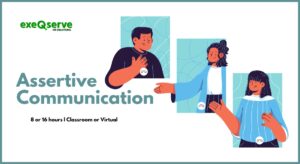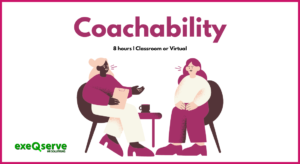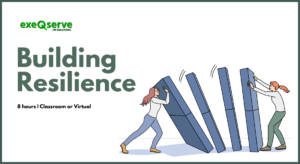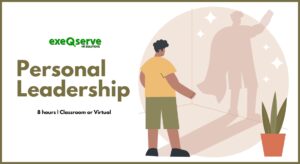Life often presents us with challenges that can make us feel like victims, helpless in the face of adversity. This sense of victimhood is accompanied by emotions such as sadness, anger, fear, and anxiety, as we grapple with situations beyond our control. However, the journey from victim to victor is possible and transformative. It involves transcending those negative emotions and embracing personal growth, empathy, and leadership, all while avoiding the treacherous path of becoming a villain.
The Victim’s Struggle
When someone finds themselves in a crisis, they might feel like they’ve lost control over their life. This loss of agency can be overwhelming and lead to a range of emotions. Sadness emerges from a deep-seated feeling of loss, anger from the frustration of being unable to change the situation, fear from the uncertainty of the future, and anxiety from the constant worry about what’s to come.
The Hero’s Journey: Rising from Victim to Victor
The hero’s journey is a universal narrative archetype that mirrors the transformation from victim to victor. It involves several stages, including the call to adventure, challenges and trials, mentorship, self-discovery, and ultimately, a return with newfound wisdom and strength. When a victim decides to embark on this journey, they begin to pursue learning, seek solutions, and focus on personal growth.
Learning and Seeking Solutions
 A crucial step in the journey from victim to victor is acquiring knowledge. This can involve researching the issue, seeking advice from mentors, or learning new skills to navigate the challenges at hand. By actively seeking solutions, victims take back control and transform their helplessness into proactivity.
A crucial step in the journey from victim to victor is acquiring knowledge. This can involve researching the issue, seeking advice from mentors, or learning new skills to navigate the challenges at hand. By actively seeking solutions, victims take back control and transform their helplessness into proactivity.
Personal Growth and Redemption
 As victims evolve into victors, they recognize the importance of personal growth. This involves developing resilience, adaptability, and emotional intelligence. By rising above their circumstances, they redeem themselves from the clutches of victimhood and emerge stronger individuals.
As victims evolve into victors, they recognize the importance of personal growth. This involves developing resilience, adaptability, and emotional intelligence. By rising above their circumstances, they redeem themselves from the clutches of victimhood and emerge stronger individuals.
The shift from victim to victor elicits positive emotions such as happiness and a sense of redemption. Overcoming challenges and taking charge of one’s life leads to a profound sense of accomplishment. The happiness derived from this journey is a testament to one’s resilience and determination, reinforcing the idea that individuals have the power to shape their destinies.
The Fork in the Road: Avoiding Villainy
While the journey from victim to victor is empowering, it’s crucial to avoid taking the wrong turn and becoming a villain. Some individuals, in their quest for empowerment, might resort to negative behaviors like seeking revenge or victimizing others. This path not only negates personal growth but also perpetuates a cycle of harm.
Guilt and Negative Justification: When individuals turn into villains, they often experience a sense of guilt deep down. To cope, they might justify their actions as a means of protecting themselves or gaining control. However, this only prolongs the internal struggle and hinders any chance of true redemption. Here are some of the phrases I heard from victims who turned into villains:
- They did it to me first
- No one helped me get to where I am, why should I help them?
- Don’t trust anyone
- Look out for number one
- All is fair in love and war
- I can’t help it if they are stupid
- My needs far outweigh others’
- It’s just survival of the fittest
- It’s ok to cheat as long as you don’t get caught (many politicians and government officials)
Keys to Becoming a Victor
Personal Mastery: Developing a sense of personal mastery involves honing skills, gaining knowledge, and taking control of one’s actions. This mastery reinforces the idea that individuals are not at the mercy of their circumstances but can actively shape them.
Growth Mindset: Embracing a growth mindset means viewing challenges as opportunities for learning and growth. This perspective enables individuals to face adversity with resilience and optimism, paving the way for a successful journey from victim to victor.
Empathy: Empathy is crucial in the transition from victim to victor. It allows individuals to understand their own emotions and the emotions of others. Empathy fosters connection, helping victims develop a deeper understanding of their journey and the impact they can have on others.
Leadership: True victors lead by example. Through their journey, they inspire others to overcome challenges and seek personal growth. Leadership doesn’t involve dominating others but guiding them towards empowerment and positive change.
The journey from victim to victor is a transformative one that requires determination, self-awareness, and a commitment to personal growth. By embracing learning, solutions-seeking, empathy, and leadership, individuals can break free from the shackles of victimhood and become agents of positive change. While the allure of turning into a villain may seem enticing in moments of desperation, the true path to victory lies in rising above negativity and embracing the redemption, happiness, and personal growth that come with becoming a victor.
















